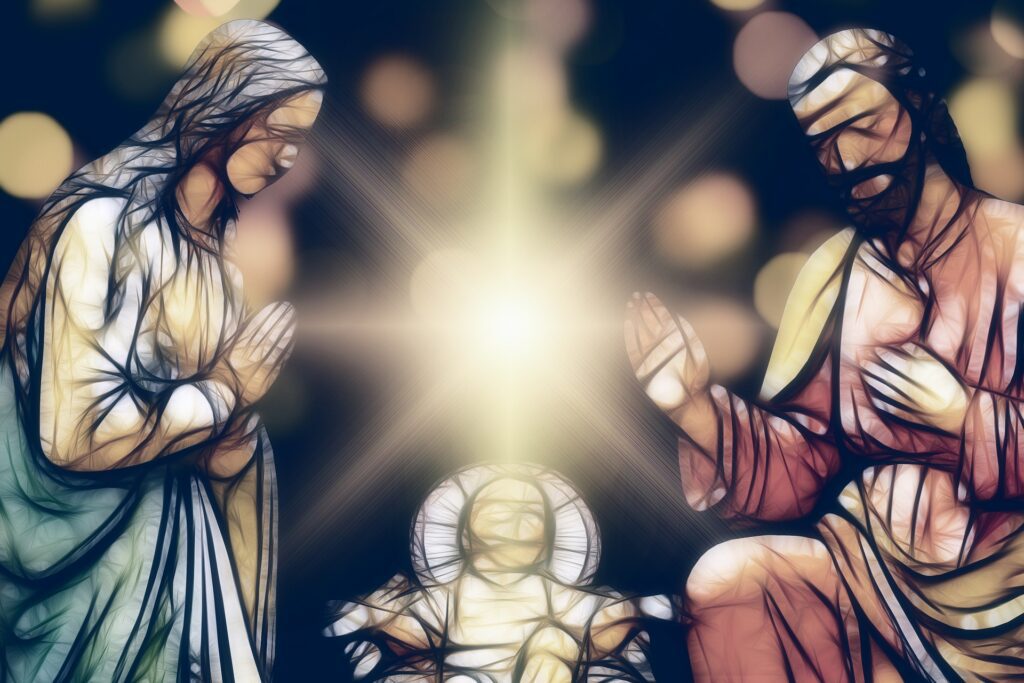This page may contain affiliate links, which means I may receive a commission from purchases made through links.
I am not usually the life of the party, but I have been to a wedding or two. Here, we are looking at the story of Jesus turning water into wine at the wedding at Cana in John 2.
Weddings are some of my favorite events to attend. I love to eat. I love to be with people I care for. And I love to celebrate.
At the heart of celebration in first-century Jewish communities was wine. Wine was and still is one of the most widely-consumed alcoholic beverages in the world. And for Jews who gathered to celebrate a wedding, it was indispensable; it went hand-in-hand with the meals they would eat. Now, many Christians choose to abstain from alcohol of any kind, but we can certainly understand food.
Imagine with me that you receive an invitation to a wedding of someone close to you. They ask you if you want beef, chicken, or fish for your meal. You RSVP on time, and you are excited for your friends’ special day. Others do the same, and the wedding party has plenty of time to know how much food to prepare, based on how many people said they were coming. Now imagine the embarrassment they feel when they run out of food before serving everyone. Even one person not being served would be cause for much anxiety on the part of the bride and groom.
Something similar happened in the town of Cana in the Region of Galilee circa A.D. 28. It was probably early springtime when this wedding took place, a season people have always looked forward to in the hope of new life and new opportunity. And these Jews knew how to party. They would go on feasting for nearly a week, much longer than the standard 1-2-hour receptions we know today. Unfortunately, those in charge were not prepared for those who showed up.
Mother Mary at the Wedding at Cana
“On the third day there was a wedding at Cana in Galilee, and the mother of Jesus was there. Jesus also was invited to the wedding with his disciples. When the wine ran out, the mother of Jesus said to him, ‘They have no wine.’ And Jesus said to her, ‘Woman, what does this have to do with me? My hour has not yet come'” (John 2:1-4).
Mary, the mother of Jesus, may or may not have been among those who planned this event, but one thing is for sure: she took this problem seriously. She, at the very least, knew the bride and groom, people from her own region. Cana was only a few miles from Nazareth, where Mary had raised her son. And when her people were at risk of permanently damaging their reputations (for this would have been much worse among the community than it would be in a modern American wedding), she stepped into action.
Jesus had not done any miracles up to this point, but his mother knew him. She knew who he was, the promised Savior, but in a more pragmatic sense, she remembered his faithfulness, obedience, and loyalty to her when he was growing up. She also knew he had begun his ministry. After all, he left home to do so. She must have heard rumors of his teaching, and she certainly saw his interaction with his disciples at this very wedding. Who else was there to solve this problem? To Mary, this question is easily answered: none other than Jesus.
So if Jesus was starting his ministry and he was informed by his mother of a real social problem for their community, why would Jesus respond the way he does? To English speakers, this response seems cold and dismissive.
Understandably, his use of the word “woman” might seem off-putting to some. The way this seems to come off is as a term of belittling. Some men in our country’s history have used the word in a such a tone as to communicate that the woman being spoken to is less than or is below him. It is a way of putting women in their so-called place for men who need to feel superior.
But that is actually the opposite of what Jesus was doing. At the very least, to call someone by that term, woman, was equivalent to calling some today “ma’am” or “my lady.” Some translations of this passage even choose the latter.
Beyond this is the idea circulated by many early church fathers that just as Adam, the man who brought death into the world, is a type of Christ the Life-Giver, so Eve, the first woman, is a type of Mary, as the one through whom life would come to all. As the yet-virgin Eve was deceived into disobedience by the Serpent, the virgin Mary, the New Eve, was led to obedience and submission to God by the word of Gabriel the angel. As Eve is the physical ancestor of every human being, Mary is the first of the spiritual mothers to all those in Christ.
Before my Protestant brothers and sisters come at me, I am not leading into a lecture about the Catholic doctrines of Mary. I don’t subscribe to all of their beliefs about her (though I also do not hold them to be heretics for those beliefs). I do, however, agree on this point: Just as the Church Fathers are called as such, so can she be called the Mother of the Church. And this passage is merely a taste of that idea which would be further developed later on. He calls her “woman” both in this passage and again on his cross: once here when his hour had not yet come, and again when his hour of being glorified had come. He says to his mother, regarding one of his disciples, “Woman, behold, your son!” and to the disciple, “Behold, your mother” (John 19:26-27). In a sense, Mary was the first Christian, and her legacy of submission to God is commendable, so much so that the angel who first greeted her called her “full of grace.” Nevertheless, this passage we are looking at shows that, despite all her holiness and devotion, the Mother of God was still a mere human, facing the shortsightedness that comes with that condition.
As stated above, Jesus’ mother knew that he had started his ministry, and she reached out to him for help with this concern. His question to her is not well-represented by the English Standard Version. It leaves out a detail that we should know. Jesus does not simply ask, “What does this have to do with me?” Rather, a more accurate translation would be, “What is that to you and to me?” He is asking Mary why she is concerning herself with such a problem – why she is making it his. But Mary’s heart was to save the wedding, as though those involved were her own children.
Jesus Finds a Way
Jesus tells her that his “hour has not yet come.” This is a relatively common idea in John’s gospel. Several times, John says that Jesus’ hour, or time, had not come yet. Each other time, it is in reference to his avoidance of showing the world who he is (John 7:6, 30; 8:20). When John changes his tune in chapter 12, Jesus says several times that his hour is here (John 12:23; 13:1; 17:1). In these places, it is about his time to be “glorified,” or lifted up on the cross and killed.
We will likely discuss all of these references in the future, but for now, they help to inform our understanding of this passage. If Jesus were to do something about this wine problem, he would risk spreading rumors about his identity and prematurely revealing himself. In this same spirit, he frequently told people he helped to be quiet about it and give glory to the Father. Jesus was willing to help, but he was not willing to advertise himself just yet. He was not in it for the fame or the glory. Though he deserves those things, he came to humble himself (Philippians 2:8). Eventually, Jesus would be glorified by his death, his ultimate coronation as the King of Kings, which we discuss in part here. But until then, he tried his hardest to hide himself from most people, especially in the beginning of his ministry.
Yet his mother persisted. Seeming to ignore her son’s words, she tells the servants at the wedding to do what he tells them. In submission to both his mother and his heavenly Father, Jesus speaks to the servants.
“Now there were six stone water jars there for the Jewish rites of purification, each holding twenty or thirty gallons. Jesus said to the servants, ‘Fill the jars with water.’ And they filled them up to the brim. And he said to them, ‘Now draw some out and take it to the master of the feast.’ So they took it. When the master of the feast tasted the water now become wine, and did not know where it came from (though the servants who had drawn the water knew), the master of the feast called the bridegroom and said to him, ‘Everyone serves the good wine first, and when people have drunk freely, then the poor wine. But you have kept the good wine until now'” (John 2:6-10).
Jesus found a way. He stayed true to his desire to remain in the background, and he still helped to save this feast. The only people who knew what happened were his mother, the servants, and his disciples. The average attendee would have just thought along with the master of the feast that the best wine being served at this point was an odd change of pace. To most, this miracle was rather inconsequential. But to the servants and followers, it was a sign of Christ’s glory: “This, the first of his signs, Jesus did at Cana in Galilee, and manifested his glory. And his disciples believed in him” (John 2:11)
When Jesus received this news from his mother, his disciples would have been wondering what he would do. They also knew who he was, and they would be waiting for something. But the way this story ends identifies this miracle as a sign that caused greater faith in them, because they saw a deeper revelation of his glory, of his power over nature.
What is This to Us?
While I am sure there are many lessons, symbols, and meanings one can take from this story, my goal has been to help us understand what Jesus is thinking when he says what he says.
Primarily, he revealed here a theological reality about himself. What we think of when we think about God determines the direction of our lives. We see here that, though he is not a vending machine, Jesus cares for the minutia of our lives. He has compassion for us in those moments of ruin. When we find ourselves in situations where our resources have run out, our future is uncertain, and our hope is gone, Jesus is enough. He is so selfless, that despite his need to remain hidden, he made a way to help those who called on him and conceded to reveal his glory to a few.
Jesus is truly God and truly Man. He went to weddings. He had a mother. He had a job. He took care of his friends and community. Yet he has all power over his own creation. He used that power for the good of his people, not for his own gain. Even in being glorified, it was ultimately for the sake of redeeming all of us who could not do it ourselves. Reflect today on both the great power and great humility of the Savior. When we remember how he used his power, we will understand how to use our own.
*If you enjoyed this post, please comment your thoughts down below and consider subscribing to receive updates on new blog posts.



